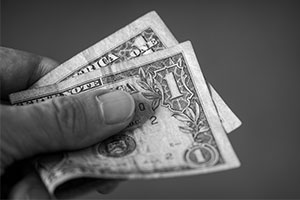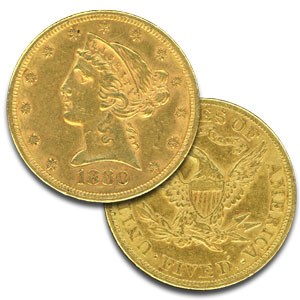Before starting to invest in precious metals, a person will likely have encountered a plethora of ads.
Unfortunately, many of the most prolific advertisers – particularly those you see on television using celebrity spokesmen – try to lure people to buy expensive "collectible," proof, and otherwise "special" coins that supposedly carry significant numismatic value.
Since new buyers are often unfamiliar with the details, dishonest sellers are able to mislead by leaving out important information.
Folks are more likely to be pleased with their purchases when they do not know all of the details. Had they known more, they may have bought something else – or from another company. This is known as the Blissful Ignorance Effect.
Add commission-based salesmen and their high-pressure sales tactics into the mix, and investors routinely get suckered into paying 100%, 200%, or even more, above the actual market value of the gold or silver items.
The Fascinating Origin Story of the Term "Joshing"
If you have ventured to a coin-collecting website, you have likely come across a story about the term origins of joshing. If I had a nickel for every time I was told someone was joshing me, I'd certainly be rich. Although the predominant origin story may be presented as accurate, the story itself may be another example of a counterfeit.
There are a few theories about the origin of the term joshing. The joshing account presented by most is that of a deaf and mute man named Josh Tatum.
The legendary tale begins in 1883, somewhere in the United States of America. Almost 20 years after the American Civil War (1861-1865), the United States Mint and Treasury had been rolling out new currencies and denominations.
At that time, there were at least three U.S. coins in circulation of similar value.
There was the Seated Liberty silver half dime (1837-1873), the Shield Nickel (1866-1883; widely considered the first modern U.S. "nickel"), and the Liberty Head Nickel (1883-1913; also known as the Barber Nickel).
Each of these coins had a face value of five cents, which added to the confusion of changing coinage.
What stood out about the newest nickel, i.e. the 1883 Liberty Head nickel, was that the obverse side (aka heads) had almost the exact depiction as the pre-1933 $5 Liberty Head gold coin (1839-1908), and the coins were nearly the same size. The $5 Liberty Head is also known as the Coronet Head gold half-eagle.
The biggest difference between the nickel and the $5 coin, besides their face value, was that the nickel was made of 75% copper and 25% nickel while the gold coin was 90% gold and 10% copper. On the reverse side (aka tails) of the nickel was the Roman numeral 'V' (i.e. five), while the gold coin had an eagle. Other than that, these two coins looked nearly identical.
Josh Tatum noticed the similarities between these two coins, so he came up with a devious plan.
Trickery and Bluster Is Deployed to Rip People Off
Mr. Tatum took a bunch of the Liberty Head nickels to a shop and had each of them gold-plated, which probably cost him a pretty penny. The deaf and mute trickster then went from store to store with the gold-plated nickels that would quickly become known as notorious "Racketeer Nickels."
He would go through the store and collect around five cents worth of things and put them on the store counter. He then laid down the coin face up beside the items for the store clerk so they could not clearly make heads or tails.
The employee would see the pristine shiny gold coin and the Liberty Head face, and then without hesitation, they would hand the fraudster, $4.95 in change.

Josh Tatum was said to have gone from store to store, eventually racking up over $15,000 in change in a matter of months by the time he was caught. Initially, he probably did not have two nickels to rub together, but he found a devious way to nickel and dime people out of a lot.
Adjusting for inflation, $15,000 in 1883 would be around a whopping $454,000 in 2023. Considering the average income in 1883 was around thirteen cents per hour, most would say he made a chunk of change scamming people in such a short amount of time.
The story goes on to say that Josh Tatum was acquitted because he was deaf and mute, so, therefore, he must not have truly misled people. Instead, by mid-1883, the U.S. Mint was already changing the reverse of the Liberty Head Nickel to include the word "Cents" which was conveniently missing below the V.
The story concludes that this is the origin of the term joshing, i.e. to joke or deceive someone.
For many years people in the coin-collecting industry have continued this infamous tall tale of Josh Tatum. However, with only a small amount of research, you will quickly find that this origin story is as worthless as a wooden nickel.
Not only are there no readily available news articles, book references, or court records about this Josh Tatum character but there is actually evidence that the term joshing was used before 1883.
Written documentation indicates that the term joshing was being used throughout the 19th Century. Evidence for "joshing" being used prior to, and around the time of, the fabricated Josh Tatum is publicly found in the following:
- 1835 - Dictionary
- 1845 - Merriam-Webster
- 1875 - "Big Jack Small" by J.W. Gally
- 1878 - The Sazerac Lying Club: A Nevada Book by Fred H. Hart
- 1887 - Saddle and Mocassin by Francis Francis
- 1891 - A Dictionary of Slang, Jargon & Cant…V1 by Albert Barrere and Charles Godfrey Leland
- 1898 - "Rara Avis." by A. Queerquill, D.D.S.
As the evidence indicates, people were using the term joshing without reference to Josh Tatum.
It's most interesting that such an elaborate story has been perpetuated all of these years by numismatists, yet there is no real evidence to support it. Perhaps the word joshing comes from other influences…
The most likely origin story about the term joshing is that Josh, or Joshua, was a name for a common man who lacked a certain normalcy or common sense in the 1800s.
There was a famous 1800s American humorist writer, Henry Wheeler Shaw, who had the pseudonym of Josh Billings. Much like his fellow nom de plume author friends Mark Twain and Petroleum V. Nasby, Josh Billings was portrayed as an average man, a cracker barrel philosopher of sorts, with little education but plenty of funny quips and useful sayings.
The Josh Billings character intentionally wrote in improper English, colloquialisms, with witty humor. However, Henry W. Shaw did not begin his writing career until somewhere around 1858 and 1863, and he eventually died in 1885 while nowhere to be found near the Josh Tatum story and the coining of the phrase "just joshing you." Unfortunately, there is no direct evidence supporting that joshing came from the humorist writer Josh Billings.
Perhaps there is a connection with the word 'nickel' itself. Nickel comes from German, meaning rascal. In French, rascaille meant rabble. In the 1800s, rabble was a derogatory name for common people.
It certainly seems a story of the gold-plated Liberty Head nickel with no cents, and a rascal like Josh Tatum, was meant to be a rabble-rouser rumor that prompted design changes to the Barber Nickel at the U.S. Mint in 1883.
Today's High-Pressure Coin Sellers Are Doing Their Own Version of "Joshing"
Without chasing nickels around dollars, let's focus on a takeaway that's relevant to today's precious metals industry.
Some of today's most ubiquitous numismatic coin companies – especially those who advertise on TV with their celebrity spokesmen – will either present a coin as far more valuable than it actually is (like the character Josh Tatum) or they will not give enough of the details to help the buyer make the best financial decision.
Too many victims of this scheme happily pay top dollar for truly what they are made to feel is a special gold or silver coin.
However, if a person is new to precious metals, it's critically important to focus on determining the melt value of the gold or silver item. Collectible value is highly subjective in nature, whereas the market price of gold and silver is always known.
Buying bullion products with minimal premiums above the melt value of the gold or silver they contain may be the surest way for investors to avoid becoming duped victims like one of the store clerks in the Josh Tatum story.

About the Author:
Joshua D. Glawson is Content Manager for Money Metals Exchange and is writer on such topics as politics, economics, philosophy, finance, and personal development. He has a Bachelor's in Political Science from the University of California Irvine.






